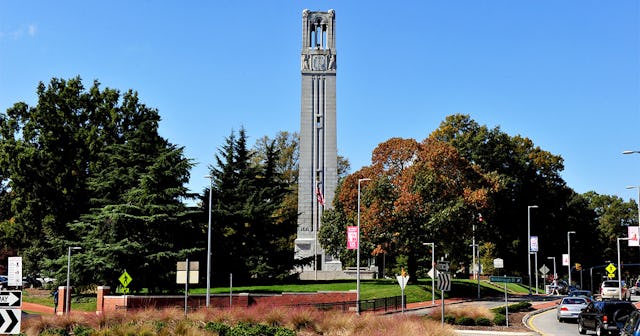NC State University Sends Students Home 2 Weeks After Reopening Due To COVID-19 Spread

Students moved from in-person to online learning, then it closed campus altogether
Two weeks after classes resumed at North Carolina State University, undergraduate students were told to leave campus because of the increasing cases of COVID-19. They must be out by Sept. 6 at the latest.
The school moved from in-person classes to virtual classes this week, but even that was not enough to slow the spread, and eventually the NC State campus closed indefinitely. “We hoped and strived to keep residence halls open and safe to best serve our students,” Chancellor Randy Woodson said Wednesday. “However, the rapid spread and increasing rate of positive cases have made our current situation untenable.”
Around 7,400 students were living on campus at the start of the semester. That number dropped to 6,200 after the school moved to online courses. Students who leave campus will receive a prorated refund for housing and dining costs for the remainder of the semester.
Some students can apply for waivers to stay on-campus, though; they include international students who cannot return home, those with financial hardships or poor internet access, and students with family members at risk for COVID-19. Graduate students are currently being allowed to stay on campus, Woodson said, citing that many need to conduct research on campus.
NC State University implemented a rigorous testing and tracing program to ensure they took measures to slow the spread of the virus and found 325 positive cases that popped up during the week of Aug. 20 to 26. “This has been a very difficult week for NC State. The spread of the virus has been unrelenting,” Woodson said at the news conference. The cases have been traced to dorms, fraternity and sorority houses, and off-campus apartments.
Woodson said large parties at frat houses and “behavior outside of our community standards and the governor’s mandates” as the likely reason for the rise in COVID-19 numbers when classes moved online.
To date, there are currently 5.9 million positive cases of coronavirus in the U.S. and over 181,000 deaths, according to Johns Hopkins University. Universities returning to in-person learning have seen results similar to NC State University, some moving entirely to online learning and others moving students off campus entirely. The University of Notre Dame announced that it would move to online instruction for at least next two weeks to stop the spread of the virus, and the University of North Carolina at Chapel Hill moved all undergraduate classes online after clusters of the virus were found at fraternity houses and dorms.
As elementary, middle and high school students begin heading back, the trend of universities moving entirely online or home for the beginning of the year paints a bleak picture for what’s to come.
“We’re not where we want to be today, but we’re hopeful that by reducing our on-campus population, we can keep our community safe and slow the spread of this relentless virus,” Woodson said. The vital work of the university will continue – to educate, to conduct groundbreaking research and to contribute to our world in meaningful ways.”
Information about COVID-19 is rapidly changing, and Scary Mommy is committed to providing the most recent data in our coverage. With news being updated so frequently, some of the information in this story may have changed after publication. For this reason, we are encouraging readers to use online resources from local public health departments, the Centers for Disease Control, and the World Health Organization to remain as informed as possible.